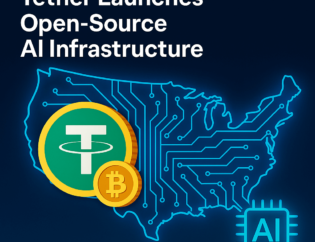
Recent remarks by U.S. Treasury Secretary Scott Bessent are more than just political signaling — they are a strategic roadmap for the global digital asset industry. The United States has made it clear: it intends to lead the next phase of global financial innovation by becoming the primary hub for digital assets.
“The U.S. should be the premier destination for digital assets. That’s key to strengthening the dollar and ensuring long-term stability in a digital age,” Bessent stated, noting that demand for U.S. Treasury bonds from crypto-related entities could exceed $2 trillion.
This isn’t happening in a vacuum. We’re witnessing deliberate moves from regulators like the SEC, CFTC, and the Treasury Department to build a regulatory framework for the digital asset space, including:
-
Approval of crypto ETFs, paving the way for institutional capital;
-
Advancement of the GENIUS Act to regulate stablecoins;
-
Proposals to establish a U.S. digital reserve backed by assets like Bitcoin.
Why the U.S. Matters for Crypto Companies
The U.S. represents:
-
The world’s largest pool of venture capital and market liquidity;
-
Home to institutional investors, family offices, and capital allocators;
-
A jurisdiction where crypto is steadily gaining legal and regulatory recognition.
But it’s also one of the most complex markets to enter from a legal and regulatory perspective. Without the right expertise, crypto companies can face:
-
Banking rejections and frozen accounts;
-
Denied licensing (MSB, BitLicense, etc.);
-
Exposure to enforcement actions from the SEC, FinCEN, or IRS.
Why Strategic Advisory is Critical for U.S. Market Entry
Entering the U.S. market is not a matter of simply launching a campaign or translation of a whitepaper. It requires:
-
Legal and structural transformation: proper entity setup, tax strategy, and licensing pathways;
-
Go-to-market and investor positioning: packaging your project to meet U.S. capital market expectations;
-
Regulatory compliance: building AML/KYC infrastructure, audit readiness, and registration under FinCEN or SEC guidelines.
Engaging with a professional advisory partner is not optional — it’s a strategic necessity. The right partner will:
-
Build a tailored go-to-market strategy aligned with U.S. compliance standards;
-
Navigate licensing and reporting with regulatory bodies (e.g., FinCEN, NYDFS, SEC, IRS);
-
Ensure registration as a Money Services Business (MSB) — a baseline requirement for most crypto operations in the U.S.
Conclusion
The U.S. isn’t just welcoming crypto — it’s shaping the global infrastructure for it. For any crypto or Web3 company with long-term global ambitions, adapting to the U.S. legal, regulatory, and technological standards is a strategic imperative.
Launching in the U.S. without expert advisory support is no longer just a risk — it’s a strategic misstep. In 2025, success won’t come to the fastest launchers, but to those who launch with precision.
Now is a strategic move for global growth https://stategate.com/contact/






